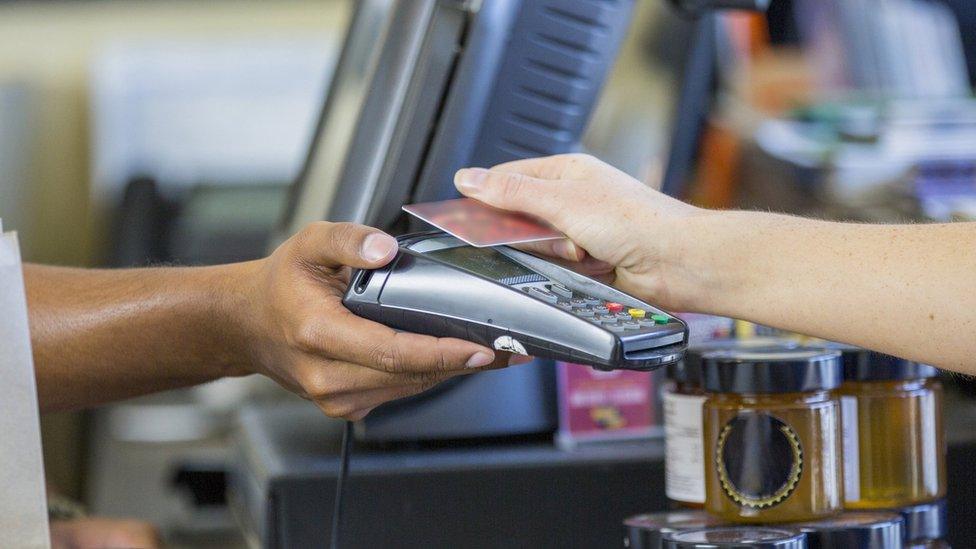Christmas saving starting in July as cost of living goes up
- Published
- comments
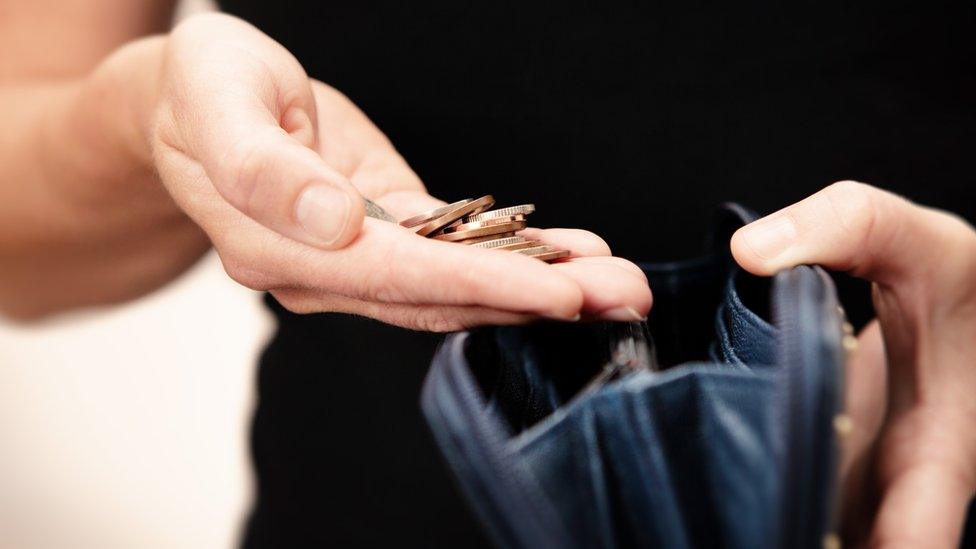
The cost of living crisis has forced some customers to make new choices about food and heating
Customers began saving up for their Christmas dinner earlier than ever this year because of the cost of living crisis, a County Antrim butcher has said.
Raymond Millar, owner of The Butchers shop in Monkstown, Newtownabbey, started his Christmas club in July.
His savings scheme does not usually start until September.
It comes as a leading GP has said his surgery is having to distribute more food bank vouchers.
Dr Laurence Dorman, the chair of the Royal College of GPs in Northern Ireland (RCGPNI), said he has been distributing vouchers for more than a year, but in recent times it has become more common.
He also warned that the cost-of living-crisis could have "massive, profound implications" for patients' diets and health.
Wholesale energy prices and food prices have risen sharply in recent months because of the war in Ukraine.
Higher inflation is having a significant impact on household budgets, especially those on low incomes who are struggle to pay for essential items.
"We're all going through the same scenario at the minute with the cost of living - diesel, electric, gas, food - everything is going up through the roof," Mr Millar told BBC News NI's Good Morning Ulster programme.
His family has been running The Butchers shop in Monkstown since 1998 and this is the first time that they have started their Christmas savings club in July.
Mr Millar said the move was in response to demand from customers who want to ensure they can provide a family dinner on 25 December.
"They want to join the Christmas club or get money saved so they can buy one of the hampers," he explained.
"So therefore, whenever they come in to collect it on the week of Christmas, everything is completely paid for so it makes it easier for them that they know that their traditional Christmas dinner is going to be on the table for their family."
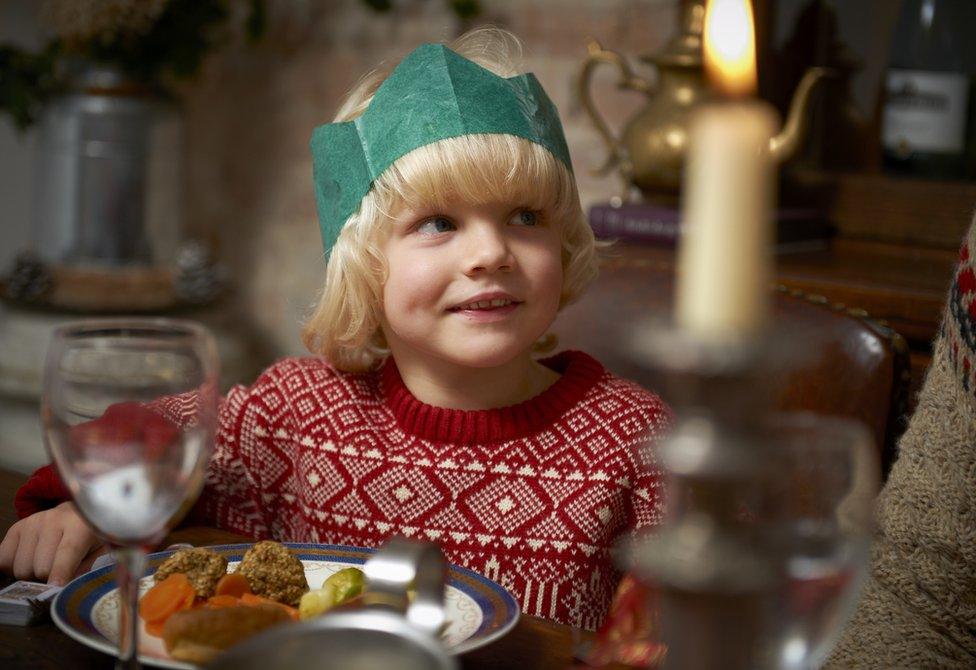
Many families could struggle to afford the type of Christmas they are used to because of rising food and fuel costs
He added: "I try not to do it too early because people want to get their summer holidays over first before they start thinking about Christmas, whereas now people are starting to think about Christmas during their summer holidays.
"And then they've got school uniforms at the end of this month to look forward to."
The butcher also said he had noticed a recent trend in customers buying cheaper cuts of meat to make their household finances stretch further.
'Never thought we'd be here'
On Tuesday, a Belfast-based paediatrician said working parents on low incomes were struggling to meet "basic needs" of their children.
Dr Julie-Ann Maney, a consultant at the Royal Belfast Hospital for Sick Children, warned of the impact on her young patients, saying poverty "obliterates their future".
Her warning was backed up on Tuesday by Dr Dorman, who expressed concern about his own patients' wellbeing.
"What I'm seeing in my surgery is that, myself and my colleagues, we're having to hand out food vouchers for our patients to go to food banks.
"I never thought that we'd be in this position in a modern economy," Dr Dorman told the BBC's Nolan Show.
As well as his role with the Royal College, he works at a doctors' surgery in Kilkeel, County Down.
Dr Dorman said his patients were having to make very difficult decisions on which essentials they spend their money on and warned about the long-term impact.
"People's health is related to all these social determinants, which is their heating, it's what they're eating.
"And if people's budgets are cut, they switch to less healthy food, they can't afford the more expensive diets," he explained.
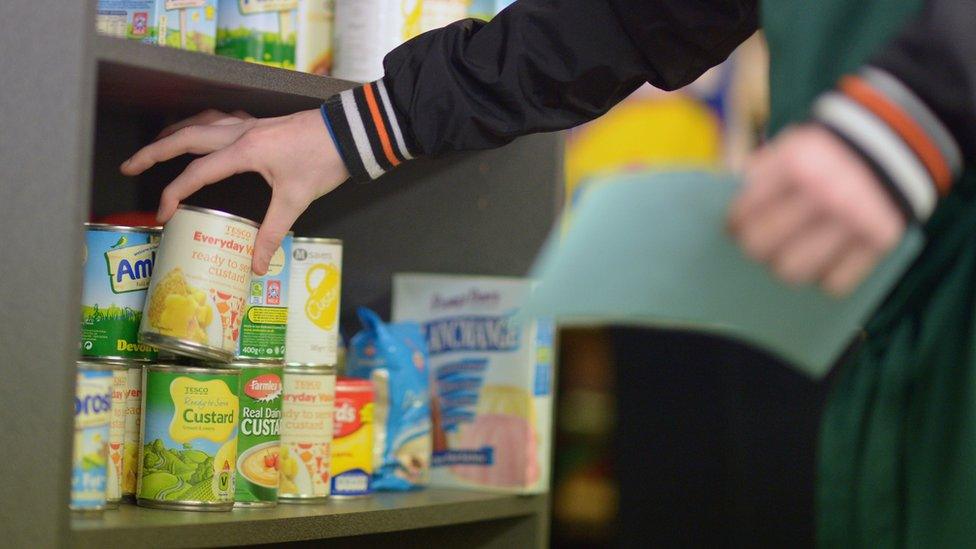
Foodbanks have been reporting increased demand this year
Although he was speaking on a very hot, sunny day in August, Dr Dorman too was concerned about what will happen to his poorer patients in winter, as they face record fuel prices.
"When we come into the winter, we get into the respiratory illness stage and a lot of children, particularly younger children, would be prone to diseases like bronchiolitis or respiratory infections.
"Children are more vulnerable than adults to dealing with this and if the heating is down, they are going to be more prone to this and it's a tragedy on our society."
In Great Britain, every household is to get energy bill discounts of £400 this autumn, with the first of six installments applied to energy bills in October.
There was doubt over how the discount could be applied in Northern Ireland because of the lack of devolved government at Stormont.
But on Wednesday, the Chancellor Nadhim Zahawi said the Westminster government was "absolutely committed" to bringing similar measures to Northern Ireland.
He is visiting Northern Ireland to hold meetings with Stormont ministers and the utility regulator.
Shutting up shop
Businesses too are facing rising costs and some have not been able to cope.
More than 40 takeaway food outlets have closed in Northern Ireland in a month, according to the Northern Ireland Takeaway Association.
It said nine of those closures happened over the past week alone.
Some takeaway owners have said they are struggling with what are described as a "tidal wave" of business costs.
"We estimate that up to a quarter of takeaways will close if they don't get intervention," Michael Henderson from the association told BBC Radio Foyle.
The body is hoping to meet with Derry City and Strabane District Council to look at ways to bolster the industry.
Related topics
- Published10 August 2022
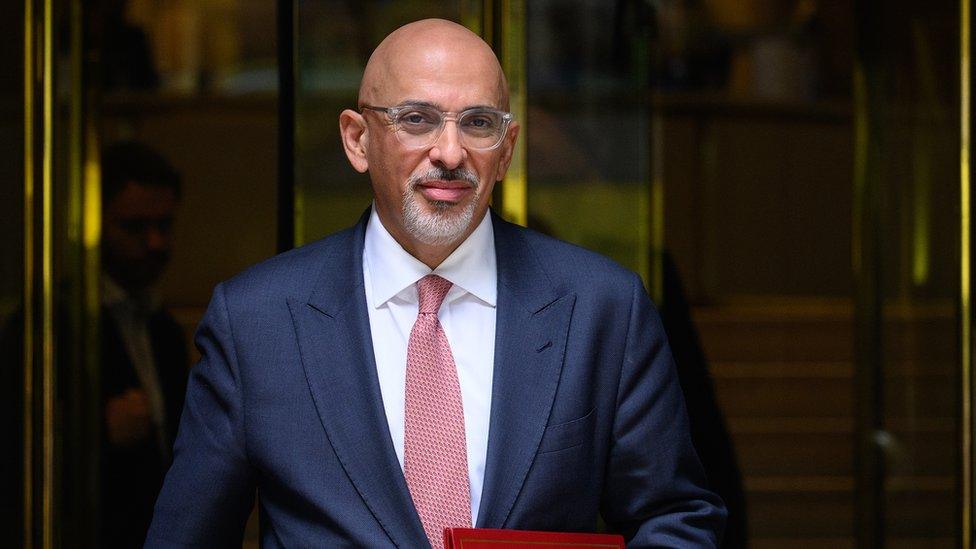
- Published4 August 2022
